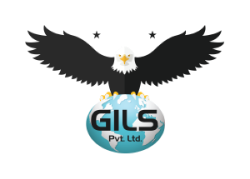How Outsourcing Helps To scale A business
How Outsourcing Helps to Scale A Business
In today’s highly competitive business landscape, scaling a business is a key objective for many organizations. Scaling refers to the process of expanding operations and increasing revenue while maintaining efficiency and profitability. While scaling a business can present numerous challenges, outsourcing has emerged as a powerful strategy to fuel growth and achieve scalability. Outsourcing involves delegating specific business functions or processes to external service providers, allowing businesses to focus on their core competencies and leverage specialized expertise. This article explores how outsourcing can help businesses scale by examining key benefits, considerations, and best practices.
Increased Efficiency and Cost Savings
One of the primary benefits of outsourcing is increased efficiency and cost savings. By outsourcing non-core functions, businesses can allocate their resources more effectively and concentrate on core activities that directly contribute to revenue generation. Outsourcing enables access to specialized expertise and technologies, leading to improved operational efficiency and productivity. Additionally, outsourcing can result in cost savings by eliminating the need to hire and train additional in-house staff, invest in infrastructure and equipment, or maintain large administrative overheads. Service providers often have economies of scale and streamlined processes, allowing businesses to benefit from cost efficiencies.
Scalability and Flexibility
Outsourcing provides businesses with scalability and flexibility, which are crucial elements in the scaling process. As a business grows, the demands on its resources and workforce increase. Outsourcing allows businesses to quickly scale their operations without the need for extensive hiring or infrastructure investments. Service providers can adapt to fluctuating demands by adjusting their resources and capacities accordingly. This flexibility enables businesses to respond to market dynamics, handle seasonal variations, and seize growth opportunities more effectively. Outsourcing also mitigates the risks associated with scaling, as businesses can quickly scale up or down based on their needs.
Access to Specialized Skills and Expertise
Outsourcing offers access to specialized skills and expertise that may not be available in-house. Service providers often have deep domain knowledge and experience in specific areas, allowing businesses to tap into their expertise without the need for extensive training or recruitment efforts. Whether it’s IT development, digital marketing, customer service, or any other function, outsourcing enables businesses to access top talent and stay competitive in rapidly evolving industries. The expertise provided by outsourcing partners can contribute to strategic decision-making, process optimization, and innovation, driving business growth and enhancing competitiveness.
Focus on Core Competencies
Outsourcing allows businesses to focus on their core competencies, which are the unique strengths and capabilities that differentiate them in the marketplace. By delegating non-core functions to external experts, businesses can concentrate their resources, time, and energy on activities that directly contribute to their value proposition and competitive advantage. This focus on core competencies enables businesses to excel in their specialized areas, deliver superior products or services, and build a strong brand reputation. Outsourcing non-core functions also reduces distractions and frees up internal teams to focus on strategic initiatives and customer-centric activities.
Enhanced Innovation and Market Expansion
Outsourcing can fuel innovation and support market expansion initiatives. By partnering with external service providers who have extensive industry knowledge and experience, businesses can gain valuable insights, fresh perspectives, and access to emerging trends and technologies. This exposure to external expertise can stimulate innovation within the organization, leading to the development of new products, services, or processes. Additionally, outsourcing can support market expansion by providing businesses with the necessary infrastructure, resources, and capabilities to enter new geographies or target new customer segments.
Considerations for Successful Outsourcing
While outsourcing offers numerous benefits for scaling a business, there are several considerations that organizations should keep in mind:
- Vendor Selection: Choosing the right outsourcing partner is crucial for successful outsourcing. Organizations should conduct thorough research, and evaluate potential vendors based on their expertise, track record, reputation, and cultural fit. It’s important to assess the vendor’s capabilities, resources, and ability to align with the organization’s goals and values.
- Clear Communication and Expectations: Effective communication is essential in outsourcing relationships. Organizations should communicate their expectations, requirements, and goals to the outsourcing partner. Both parties should establish open lines of communication and maintain regular contact to ensure alignment, address any concerns, and provide feedback.
- Data Security and Confidentiality: Protecting sensitive data is of utmost importance when outsourcing. Organizations should assess the outsourcing partner’s data security protocols, compliance with industry standards, and measures to ensure confidentiality. Non-disclosure agreements (NDAs) and data protection clauses should be in place to safeguard sensitive information.
- Transition and Change Management: Smooth transition and change management are critical during the outsourcing process. Organizations should define clear roles and responsibilities, establish transition plans, and provide adequate training and support to both internal and external teams. Change management strategies should address potential resistance and ensure a seamless transition.
- Performance Monitoring and Quality Control: Organizations should implement mechanisms to monitor the performance and quality of the outsourced functions. Regular performance reviews, key performance indicators (KPIs), and service level agreements (SLAs) should be established to track and measure the outsourcing partner’s performance. Feedback loops and continuous improvement processes should be in place to address any issues and ensure quality control.
- Risk Mitigation: While outsourcing offers benefits, it also involves certain risks. Organizations should identify potential risks and develop strategies to mitigate them. This includes having contingency plans, contractual provisions, and exit strategies in place to address any unforeseen circumstances or termination of the outsourcing arrangement.
- Cultural and Language Considerations: When outsourcing to offshore locations, cultural and language differences can impact communication and collaboration. Organizations should consider these factors and ensure effective cross-cultural communication and understanding. Language proficiency, cultural training, and cultural sensitivity should be addressed to foster effective teamwork and collaboration.






